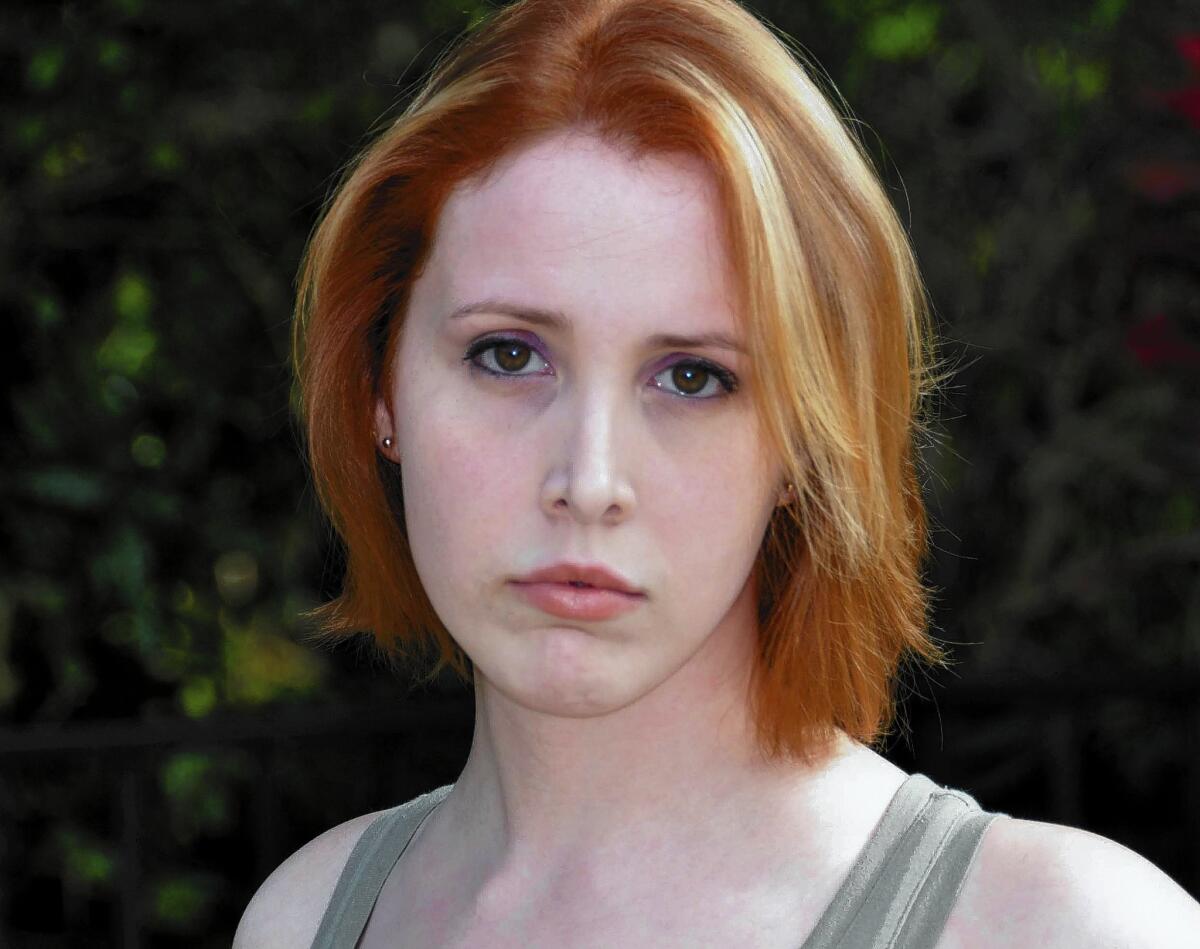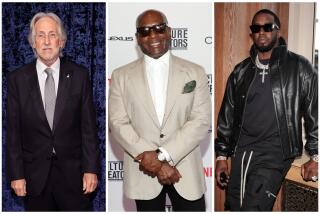Younger women outspoken about Woody Allen and Dylan Farrow

Sarah Seltzer grew up a fan of Woody Allen movies — her parents showed her “Sleeper,” “Annie Hall,” and “Everyone Says I Love You” once she was old enough to get the jokes. As a 31-year-old writer living in New York, she has admired Allen’s more recent work, the bittersweet “Midnight in Paris,” the meaty roles for women in “Blue Jasmine.”
So when the New York Times website published an open letter from Allen’s adopted daughter Dylan Farrow last week, alleging that the director sexually assaulted her at age 7, Seltzer was thrown. The first time Allen’s relationship with Dylan made news, during his ugly custody battle with her adoptive mother, Mia Farrow, in the early 1990s, Seltzer was too young to understand the story. Now she was chilled by it.
“I found the letter deeply convincing and very sad,” Seltzer said. “I felt very sorry for Dylan and for all the pain that she testified to in the letter. I sort of remember hearing stories about this when I was in elementary school, but it was a little over my head.”
PHOTOS: The many movies of Woody Allen
Allen, who had kept mum all week, responded in a New York Times letter of his own which went online Friday night. “Of course, I did not molest Dylan,” said the filmmaker, whose “Blue Jasmine” is up for three Academy Awards and first Broadway musical is a month from beginning previews. “No one wants to discourage abuse victims from speaking out, but one must bear in mind that sometimes there are people who are falsely accused and that is also a terribly destructive thing.”
Some of the most vocal and aggrieved reactions to Farrow’s letter have often come from women under 40. These include 27-year-old “Girls” creator Lena Dunham, who called Farrow’s words “courageous”; film director Miranda July, 39, who tweeted an excerpt of a 1976 People magazine interview in which Allen joked about sharing a love nest with 12-year-old girls; and 17-year-old fashion blogger Tavi Gevinson, who engaged in a conversation with her Twitter followers about whether she could still watch Allen’s movies.
“I’ve loved his movies and cited them over the years but I don’t want to contribute any more to a culture that tells survivors of abuse that their voices do not matter,” Gevinson tweeted.
It’s predictable, perhaps, that the demographic most outwardly troubled by the renewed allegations is a group more likely to identify with 29-year-old Dylan Farrow than with her 78-year-old father.
PHOTOS: Behind the scenes of movies and TV
“It’s not surprising that a new generation has found Woody Allen, cause he makes great movies,” Allen biographer Eric Lax said. “For people 40 and above, they’ve already lived through this cycle 20 years ago. They made up their minds one way or another. But like the 20-year cicada, this thing has popped up again.”
Many in Allen’s younger female audience began to know him in the midst of his recent, late-career successes, a period in which he has cast appealing actresses like Scarlett Johansson, Rachel McAdams and Cate Blanchett and swoon-worthy leading men like Owen Wilson, Jonathan Rhys Meyers and Javier Bardem.
They’re also a group more apt to be frank about sexual abuse. According to the National Child Abuse and Neglect Data System, around 1 in 5 girls in the U.S. suffers some form of sexual molestation during childhood. While rape is an ancient issue, talking openly about it is a relatively recent phenomenon.
Women under 40 have grown up attending Take Back the Night rallies on their college campuses and reading blog entries about sexual abuse on websites like Buzzfeed and Jezebel; a post on Buzzfeed from this past week, a beginner’s guide to rape culture, has been recommended on Facebook 31,000 times.
PHOTOS: Woody Allen’s highest grossing films
“Sensibilities have changed,” said Illinois writer Roxane Gay, 39, who penned a piece supportive of Dylan Farrow on Salon. “We’re more inclined now to give the victim the benefit of the doubt. As a woman who’s experienced sexual violence, I’m predisposed to believe the victim.”
Many of the young women sharing their feelings about Dylan Farrow on social media aren’t old enough to remember the first time the director’s family drama erupted publicly, after Allen began dating Mia Farrow’s 19-year-old adopted daughter, Soon-Yi Previn, whom he later married. At that time an investigative team from the Yale-New Haven hospital said they found no evidence that Allen abused Dylan, and suggested that she had been coached, but a Connecticut judge awarded custody of Allen and Farrow’s three children to Farrow.
The story, dormant for 21 years, resurfaced this fall in the form of a Vanity Fair article that included interviews with Mia, Dylan and seven of Mia’s other 14 children.
The outrage took root on social media. During the Golden Globe Awards last month, as Diane Keaton accepted a Cecil B. DeMille Award on Allen’s behalf, Dylan’s younger brother Ronan tweeted, “Missed the Woody Allen tribute — did they put the part where a woman publicly confirmed he molested her at age 7 before or after Annie Hall?,” a comment which has since been retweeted more than 12,000 times.
PHOTOS: Celebrities by The Times
On Saturday, Dylan’s letter appeared on the New York Times website, on the blog of Nicholas Kristof, who wrote a column about it. (The Los Angeles Times Opinion editors were also approached about running an op-ed written by Dylan Farrow and decided not to publish it.)
Since then an odd 2014-style public relations war has erupted. While the Hollywood Reporter and others tried to gauge the effect on the Oscar races, the New York Review of Books reposted a 1979 piece by Joan Didion on immaturity in Allen’s films. Among others, legal commentator Dahlia Lithwick cautioned on Slate about the perils of “this widespread litigation by hashtag.”
On her ABC morning talk show “The View,” Barbara Walters, 84, defended Allen as a friend and devoted father. “The fact that he likes younger women, that has nothing to do with it,” Walters said.
Author Joyce Carol Oates, 75, warned on Twitter that, “One might as readily step into the spinning propellors of an airplane as to engage in publicly ‘discussing’ Dylan Farrow/ Woody Allen issue.”
Many younger women were happy to step into that propeller, perhaps, writer Camille Paglia said, because Allen’s movies weren’t as formative a part of their lives.
PHOTOS: Woody Allen’s leading ladies
“[Women under 40] didn’t come to cultural consciousness saturated in Woody Allen films at their glorious height,” said Paglia, 66, professor of humanities and media studies at the University of the Arts in Philadelphia. “They feel no connection with him. Women my age feel that Woody is practically a family member — like a quirky cousin. He was on screen so often that (right or wrong) we feel we know him. And we’ve always been grateful for the rich variety of his women characters as well as for his attentiveness to the subtle intricacies of romantic relationships.”
Despite her warm feelings toward Allen and his movies, Paglia said she is inclined to believe Dylan’s letter.
Seltzer is pondering how to separate the man from his movies — and whether to see Allen’s next film, a romantic comedy called “Magic in the Moonlight,” starring 25-year-old Emma Stone.
“I don’t think [the allegations] negate the quality of his movies,” Seltzer said. “But I haven’t decided what I’ll do with my money in the future.”
More to Read
Only good movies
Get the Indie Focus newsletter, Mark Olsen's weekly guide to the world of cinema.
You may occasionally receive promotional content from the Los Angeles Times.








